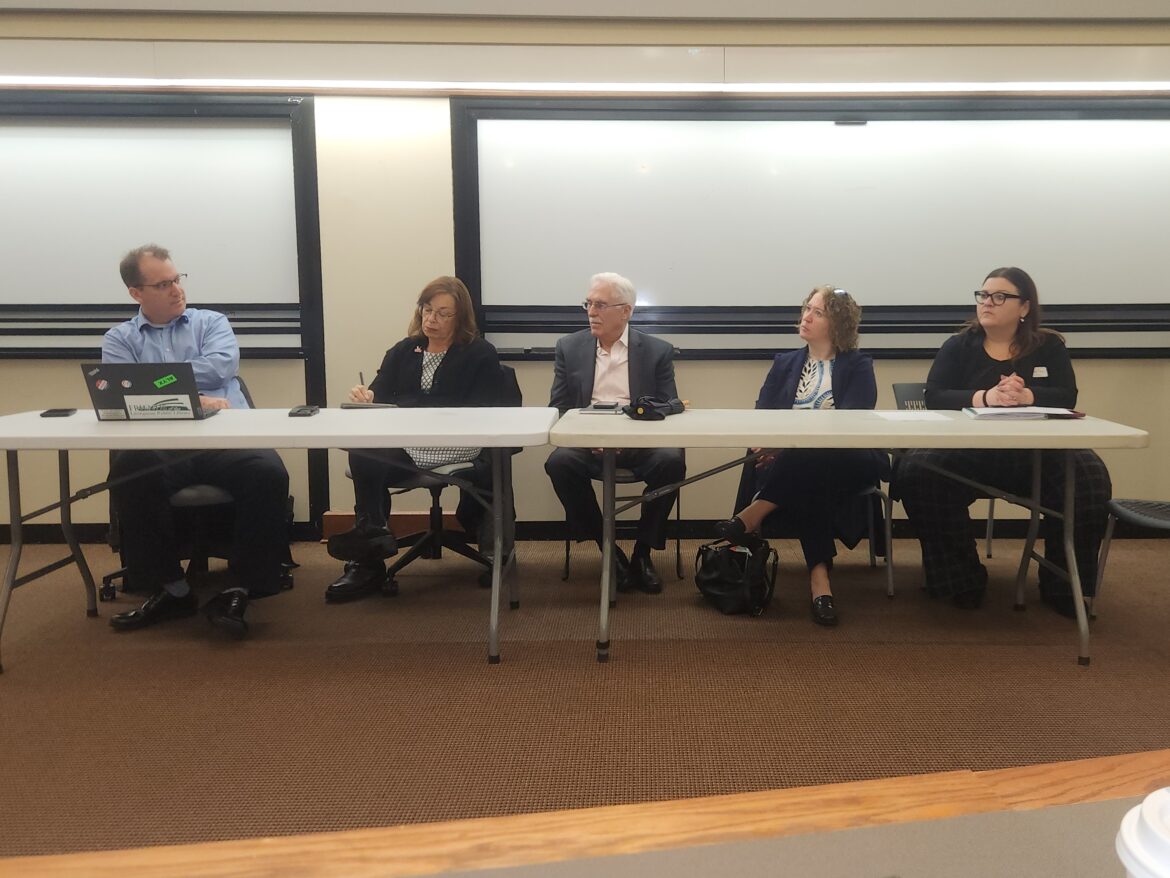It was all about putting in everyone’s two cents about the prospect of paying more to attend classes at Montclair State University.
On April 7, a tuition listening session took place at University Hall, Room 1050. The meeting featured a panel of five university officials. They heard student input about a possible enrollment cost hike for the 2025-2026 academic year.
James Solodar, assistant vice president for budget and planning, says the Montclair State Board of Trustees (BOT) may raise tuition in the summer. The BOT’s vote will happen once the state government finalizes its budget in late June.
A key issue is the level of state aid for higher education that the university ultimately receives. Another factor is the university’s growing operational expenses.
Also present at the hearing were two student representatives on the BOT. Artem Beliavski, who serves as a voting student representative and Quentin Ocampo, a nonvoting representative.
Beliavksi moderated the discussion between the panel and the sparsely attended gallery. He said the session’s goal was to get student perspectives about tuition increases.
“Hopefully, we can take this to the board,” Beliavksi said, referring to the BOT. “And we can take your thoughts into consideration.”
One question came from Ximena Garza-Flores. She is a sophomore majoring in educational foundations for elementary teachers.
“I think because it’s such a big and scary thing,” she said, about the prospect of a tuition raise. “Can you guys please give us a very simple, basic breakdown of why our tuition is going up?”
Solodar replied that Montclair State’s costs go up every year. He added that about 70 percent of the institution’s revenue comes from tuition and fees.
“On the cost side, most of our expenses are personnel,” Solodar said. “Most of our personnel are on collective bargaining agreements. Those salaries and wages go up every year, as well as we buy lots of things to run [Montclair State].”
He said climbing health plan prices and overall inflation are also fiscal challenges. He shared that aid from the state to the university is anticipated to remain flat.
Dr. Dawn Meza Soufleris, vice president for student development and campus life, further elaborated.
“Much of our employees are unionized and they have guaranteed increases every year that are nonnegotiable,” Soufleris said. “Then there is cost-of-living. We can go on and on.”
Aldo Cruz, a sophomore biology major, wondered about giving a post-hearing opinion about the tuition issue.
“Where exactly can you submit questions or get answers or information regarding what people may be concerned about in this subject?” he asked.
Soufleris said that any interested parties can express their opinions to Beliavski or Ocampo. Both can be reached at studenttrustee@montclair.edu.
She added that Montclair State will email news about 2025-2026 tuition in early summer, once all facts are known.
Lea Spasic, a Student Government Association legislator and clerk, noted the impact of higher tuition on international students. She is a student from Serbia.
“Hearing about those increases affect my life as well,” Spasic said. “Because for someone who moved across a different country, it was a big step because I had to leave everything behind, including my whole life, just so that I can come here and achieve.”
A grassroots suggestion came from Warren Rigby, the coordinator for civic and voter engagement at Montclair State. Standing in the audience, he advised collegiates to speak their minds about tuition and higher education aid to state leaders.
As an example, Rigby cited a March 25 student and faculty delegation at the state capital to advocate for greater investment in Montclair State.
Rigby said student testimony can make a compelling difference.
“They get lobbied by institutions on a consistent basis, but to hear that from a student about how that impacts them, that’s what sends the message across the finish line in a lot of instances,” Rigby said.



